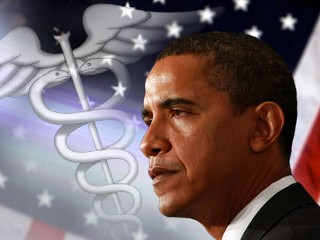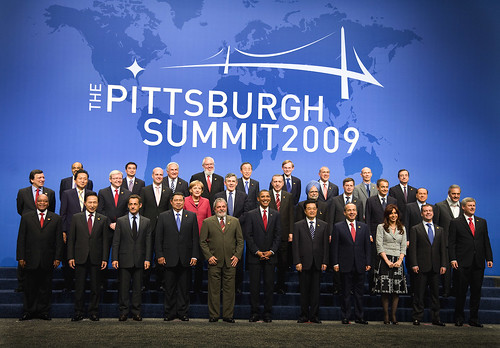 By Logan Scisco
By Logan Scisco
During the “off season” after NFL Nationals, the issue of the budget deficit has come to be a major one in American politics. It has the potential to shape the outcome of the midterm elections in 2010 and is playing a role in President Barack Obama’s declining popularity ratings. As extempers get ready for the 2009-2010 season, which starts in less than six weeks with the Wake Forest National Early Bird, they will face questions about an array of economic issues such as unemployment, the effectiveness of the stimulus package, and the level of international trade as well as the controversial issue of healthcare reform. All of these issues have something to do with the budget of the United States government and by proxy the deficit the U.S. government currently finds itself facing.
Americans in the late 1990s got used to seeing fiscal discipline on Capitol Hill between the executive and legislative branches. President Bill Clinton worked with Republican leaders on Capitol Hill, a relationship that was often tense through impeachment proceedings and a government shutdown, to craft a budget that was balanced and that ran a surplus totaling $128 billion. In fact, the major issue of the 2000 election between Vice-President Al Gore and then-Texas Governor George W. Bush was over what to do with this budget surplus, with Gore arguing that it needed to be used to shore up entitlement programs such as Social Security in a “lockbox” and Bush arguing that it needed to be given back to the American people in the form of a tax cut. After the first presidential debate between the two men in the fall of 2000, Saturday Night Live had a hilarious mock debate over this issue.
After Bush won the election, he was able to get Congress to approve his tax cut package and celebrated the occasion as a victory for small government. However, thanks to September 11th and a U.S. recession that began after Bush was elected, the federal government started to see deficits early in the Bush administration. By the time Bush left office, he and Congress, which was controlled for six years of his administration by Republicans, left the country with nearly a $500 billion deficit. To put this into perspective, that number represents nearly three percent of America’s gross domestic product (GDP), the total value of goods and services produced within the U.S. in a given year.
Therefore, this topic brief will describe the state of the budget deficit under the Obama administration, how Congress and the Obama administration are trying to cope with it, and the political fallout on the budget deficit issue.
Read More
 On July 18th, Detroit filed for bankruptcy, making it the biggest municipal default in American history. Contemporary observers of the city would be hard pressed to tell that it was once one of the fourth most populated cities in the country and produced three-quarters of America’s war machine in the Second World War. Detroit’s bankruptcy has been decades in the making, a consequence of political corruption, deindustrialization, globalization, “white flight,” and poor budgeting. Given that Detroit’s tenure in bankruptcy court will likely last until the end of 2014, if not beyond, extempers will face a host of questions this season about how Detroit got to this point, how it can fix its debt, whether the federal government should come the assistance of the beleaguered city, and what impact its bankruptcy may have on the rest of the United States, namely those cities who are approaching the same fiscal cliff that Detroit has already driven off of.
On July 18th, Detroit filed for bankruptcy, making it the biggest municipal default in American history. Contemporary observers of the city would be hard pressed to tell that it was once one of the fourth most populated cities in the country and produced three-quarters of America’s war machine in the Second World War. Detroit’s bankruptcy has been decades in the making, a consequence of political corruption, deindustrialization, globalization, “white flight,” and poor budgeting. Given that Detroit’s tenure in bankruptcy court will likely last until the end of 2014, if not beyond, extempers will face a host of questions this season about how Detroit got to this point, how it can fix its debt, whether the federal government should come the assistance of the beleaguered city, and what impact its bankruptcy may have on the rest of the United States, namely those cities who are approaching the same fiscal cliff that Detroit has already driven off of.


 Judicial issues is a topic area that United States extempers face, usually at NFL Districts and the NFL National Tournament, although it is also a topic that can find itself used at local and state tournaments as well. The judicial branch is one of the three branches of the U.S. national government and plays a vital role in defining the U.S. Constitution and weighing in on heated political, social, and economic issues. This topic brief will break down some of the major issues that extempers might have to discuss on the judicial issues topic area and things they want to keep in mind when answering these questions.
Judicial issues is a topic area that United States extempers face, usually at NFL Districts and the NFL National Tournament, although it is also a topic that can find itself used at local and state tournaments as well. The judicial branch is one of the three branches of the U.S. national government and plays a vital role in defining the U.S. Constitution and weighing in on heated political, social, and economic issues. This topic brief will break down some of the major issues that extempers might have to discuss on the judicial issues topic area and things they want to keep in mind when answering these questions. Until early November, extempers can expect to run into lots of questions about the midterm elections. These questions may ask you which party will win the elections, what the biggest issue in the elections is going to be, or about specific races happening throughout the country. Usually, if you get a question about a specific race it will be about a Senate or governor’s race because those typically attract more attention than House races. Extempers should have files on the major races and get to know the candidates in those races. To get an idea of what the major races are, extempers should go to the Cook Political Report or Real Clear Politics and see the races that are classified as “tossups.” The “tossup” label designates races where the Democratic and Republican candidates have a chance to win. If you are new to extemp, you will see this labels again in 2012 for the presidential campaign.
Until early November, extempers can expect to run into lots of questions about the midterm elections. These questions may ask you which party will win the elections, what the biggest issue in the elections is going to be, or about specific races happening throughout the country. Usually, if you get a question about a specific race it will be about a Senate or governor’s race because those typically attract more attention than House races. Extempers should have files on the major races and get to know the candidates in those races. To get an idea of what the major races are, extempers should go to the Cook Political Report or Real Clear Politics and see the races that are classified as “tossups.” The “tossup” label designates races where the Democratic and Republican candidates have a chance to win. If you are new to extemp, you will see this labels again in 2012 for the presidential campaign. Once the midterm elections end, the next big political campaign will be the 2012 presidential election. While President Obama will likely be nominated by the Democrats for a second term, the Republican opposition has no clear frontrunner. Based on the midterm election cycle, the GOP presidential primary might be one of the most thrilling and competitive in years and might see a bloody civil war between social and fiscal conservatives. Such a battle has the potential to either strengthen the party and the candidates involved or devastate the GOP’s 2012 chances.
Once the midterm elections end, the next big political campaign will be the 2012 presidential election. While President Obama will likely be nominated by the Democrats for a second term, the Republican opposition has no clear frontrunner. Based on the midterm election cycle, the GOP presidential primary might be one of the most thrilling and competitive in years and might see a bloody civil war between social and fiscal conservatives. Such a battle has the potential to either strengthen the party and the candidates involved or devastate the GOP’s 2012 chances. In the United States, the Democratic Party is attempting to paint the Republican Party as mean spirited and warning voters that if the Republicans take control of Congress this November they will privatize Social Security. This tactic is meant to rally elderly voters, who vote more than any other group, to the polls on Election Day. Social Security is referred to as the third rail in American politics because it is such a deadly issue for politicians to confront. However, all experts agree that without changes in its structure, Social Security and America’s dreams of a government pension in old age are likely to go the way of the dodo.
In the United States, the Democratic Party is attempting to paint the Republican Party as mean spirited and warning voters that if the Republicans take control of Congress this November they will privatize Social Security. This tactic is meant to rally elderly voters, who vote more than any other group, to the polls on Election Day. Social Security is referred to as the third rail in American politics because it is such a deadly issue for politicians to confront. However, all experts agree that without changes in its structure, Social Security and America’s dreams of a government pension in old age are likely to go the way of the dodo.

 By Logan Scisco
By Logan Scisco
 Several days ago, Germany’s federal election took place and voters gave Chancellor Angela Merkel another term in office. The major change from the election result was that the period of Germany’s “grand coalition” between Merkel’s Christian Democrats (CDU), and the Christian Social Union (CSU), and the Social Democrats (SPD) is finished. Instead, Germany will now be governed by a coalition of Merkel’s CDU/CSU and the Free Democratic Party (FDP), which last governed Germany together in 1998.
Several days ago, Germany’s federal election took place and voters gave Chancellor Angela Merkel another term in office. The major change from the election result was that the period of Germany’s “grand coalition” between Merkel’s Christian Democrats (CDU), and the Christian Social Union (CSU), and the Social Democrats (SPD) is finished. Instead, Germany will now be governed by a coalition of Merkel’s CDU/CSU and the Free Democratic Party (FDP), which last governed Germany together in 1998. Last Friday, President Barack Obama opened a new chapter in U.S.-Russian relations by decided to adjust plans to place missile interceptors in Poland and an advanced radar system in the Czech Republic. Obama’s policy was likely fuelled by advice from the Defense Department, who had argued that such a system was not capable of meeting the defense needs of America or its allies in the region, and a belief that cooperation with Russia was needed to resolve pressing world problems, notably nuclear proliferation.
Last Friday, President Barack Obama opened a new chapter in U.S.-Russian relations by decided to adjust plans to place missile interceptors in Poland and an advanced radar system in the Czech Republic. Obama’s policy was likely fuelled by advice from the Defense Department, who had argued that such a system was not capable of meeting the defense needs of America or its allies in the region, and a belief that cooperation with Russia was needed to resolve pressing world problems, notably nuclear proliferation. Last week, President Barack Obama tried to change the message on the healthcare debate. As the American public has grown more skeptical of the President’s agenda, Obama’s team has tried to retake the initiative in the media and part of that was Obama’s address to a joint session of Congress. However, during Obama’s speech when he said that illegal immigrants would not receive coverage in his healthcare plan he was interrupted with a shout of “You lie!” by Joe Wilson, a Republican representative from South Carolina. For anyone who has not seen the video, it is worth a look just to see Speaker of the House Nancy Pelosi’s facial expression after the incident.
Last week, President Barack Obama tried to change the message on the healthcare debate. As the American public has grown more skeptical of the President’s agenda, Obama’s team has tried to retake the initiative in the media and part of that was Obama’s address to a joint session of Congress. However, during Obama’s speech when he said that illegal immigrants would not receive coverage in his healthcare plan he was interrupted with a shout of “You lie!” by Joe Wilson, a Republican representative from South Carolina. For anyone who has not seen the video, it is worth a look just to see Speaker of the House Nancy Pelosi’s facial expression after the incident. By Logan Scisco
By Logan Scisco